Captain James Fitzjames RN (1813-1848?) www.jamesfitzjames.com
Don't wanna be here? Send us removal request.
Text
Delicate John Barrow

I guess John Rae meant to be complimentary, but is perhaps a bit blunt. "For someone as delicate as you John Barrow, & who's only used to sitting behind a desk, you did very well climbing those mountains!"
[Barrow Bequest, British Library]
20 notes
·
View notes
Text
JB also consumed plenty of alcohol at home. Here he is (left), drunk with his neighbour Mr Lockwood (right). Appropriately, the word 'drunk' is smudged. [August 1869]

"John Barrow very drunk. CV Lockwood worse"

John Barrow's holiday
In 1873 he went on his annual holiday to France & Switzerland and uh, he certainly had enough to drink. About Madeira wine he says: "The inevitable glass daily (hourly when possible)" Was this his secret to a long life?






[John Barrow's private journal, 1873, Weston Library, Oxford]
59 notes
·
View notes
Text
John Barrow's holiday
In 1873 he went on his annual holiday to France & Switzerland and uh, he certainly had enough to drink. About Madeira wine he says: "The inevitable glass daily (hourly when possible)" Was this his secret to a long life?






[John Barrow's private journal, 1873, Weston Library, Oxford]
59 notes
·
View notes
Text
4 years of Fitzjames research!

Very pleased with everything I've been able to discover so far and all the people I've met and friends I've made! Currently, I'm still reading lots of primary sources (I want to see everything there is to see) but hope to get back to writing the Fitzjames biography soon.
These days I'm more active on Twitter (in the wonderful history/polar fans corner of it) and only post on Tumblr very occasionally. It often doesn't feel like the right place for me.
47 notes
·
View notes
Text

Happy 212th Birthday to James Fitzjames!! Have a good one old boy!
This is a bit of a rush job tbh but he's always on my mind and he has such an incredible and frankly unbelievable story that I couldn't not make something to celebrate him.
I tried to include different iconography from his life but had a hard time tracking down clear pics of some of it (particularly his house in Abbots Langley).
164 notes
·
View notes
Text

My contribution to @sailoutsummerfest is based on weeks of obsessive research and reading hundreds of pages of letters. I learnt all about John Barrow's close friend Sherard Osborn and the Admiralty's last Franklin Search Expedition, wild stuff! Historical fiction is a way for me to interpret history with my heart and fill in the gaps. Hope the two John Barrow fans out there enjoy!
https://archiveofourown.org/works/67974216?view_full_work=true
#polar exploration#franklin expedition#james fitzjames#john barrow jr#sherard osborn#historical fiction#sailoutsummer25
17 notes
·
View notes
Text
An Irving and Fitzjames mention in Kingston’s letter to Malcolm — 27th April 1838 (Yarmouth)
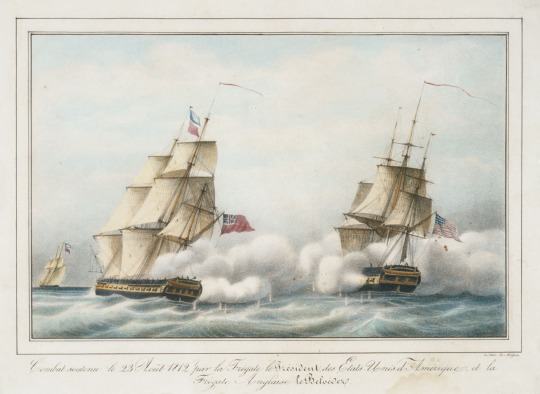
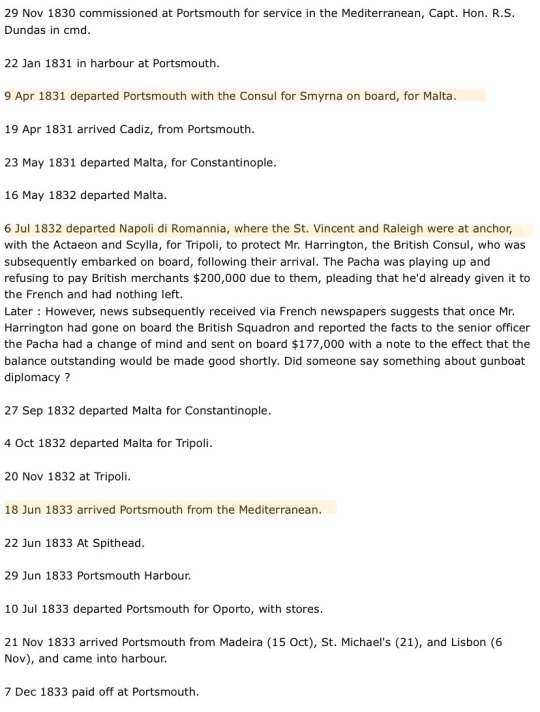
Although this letter (below) doesn’t explicitly confirm that John met Fitzjames when the Belvidera was stationed in the Mediterranean, it does seem that both of his close friends, Malcolm and Kingston, were present in the picture sometime before or when Fitzjames was 'keeping it up' with the Belvidera lads in May 1833 (right before Malcolm was to leave the Navy on account of his health, returning, as seen in Fitzjames’ record, when the Belvidera left for England). But, stationed where they were and with Kingston’s confirmation of their knowing each other in some passing manner during this time, it seems reasonable to assume that Irving and Fitzjames did meet, or at least know of each other, during this time as teenage midshipmen.
Regardless, based on the wonderful @jamesfitzjamesdotcom’s research, Kingston nevertheless contributes to the lack of letters concerning Fitzjames during his time aboard the Excellent;
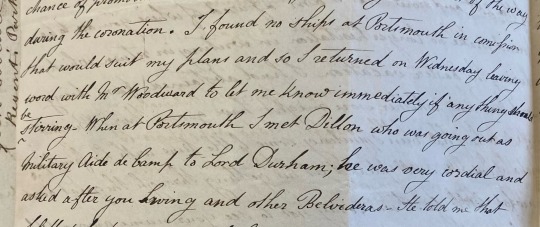
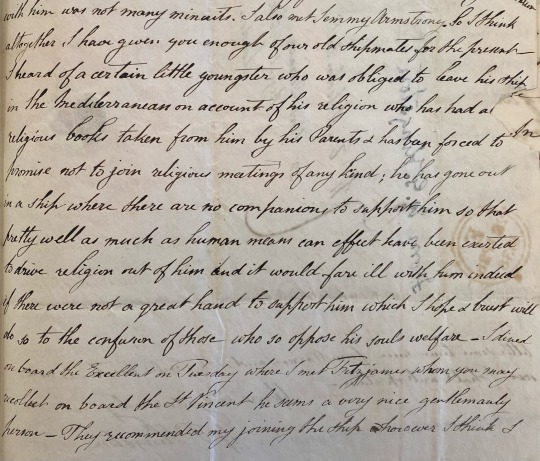
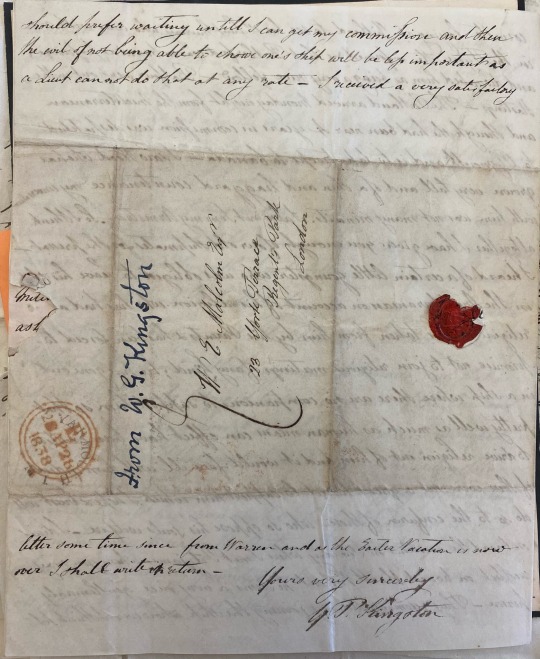
Source: Acc.6684/27 NLS
TRANSCRIPTION, with the bold parts being the relevant parts here (thankfully way easier to decode than Kingston’s other letters!):
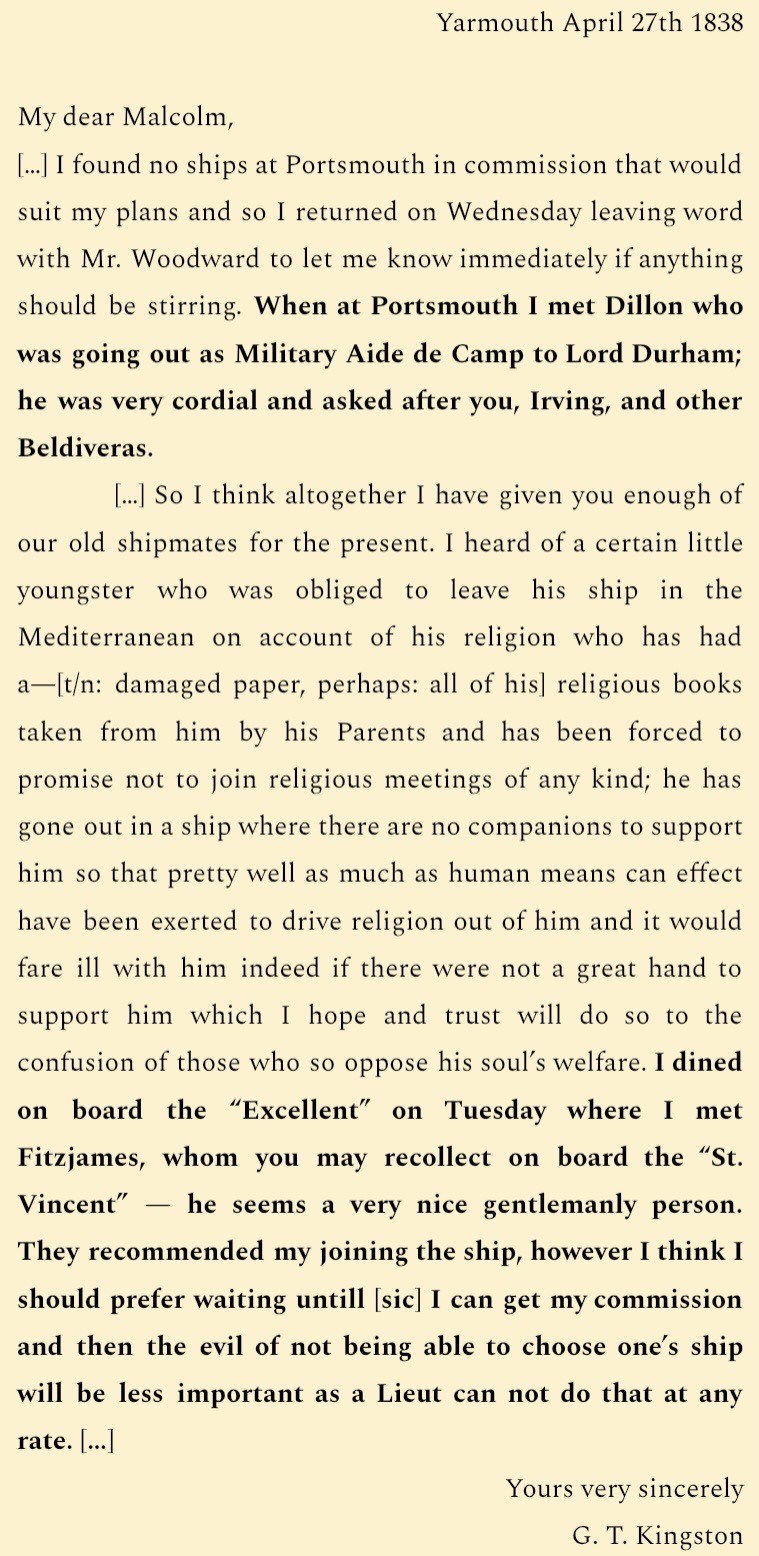
I find Irving and Fitzjames’ relationship quite interesting, particularly after reading Woodman’s Inuit Testimony. We know that Fitzjames was theoretically responsible for choosing the officers of the Franklin expedition, with Irving being selected as third lieutenant for the Terror’s 1845 crew. Consequently, both men are mentioned on the only surviving literary record attesting to the crew’s abandonment of the ships in 1848 (Irving’s retrieval of the famous Victory Point note, which he delivered to Fitzjames to amend):

So, I find that if they did meet as teenagers, then another layer of intrigue and tragedy surfaces. But, of course, until there is concrete proof then this narrative unfortunately remains fragmentary!
39 notes
·
View notes
Text
Portraits of Gloucester Gambier & other Gambiers

From my collection, a photo of Gloucester Gambier, Fitzjames' half-brother! After Fitzgerald Gambier's portrait painting (also on my site), this is now the second half-brother of Fitzjames of whom we can see what he looked like. I think there's a very strong family resemblance between Fitzjames and Gloucester!
I have also acquired three portraits that belonged to a descendant of William Gambier, Fitzjames' eldest half-brother. They are of Jemima Gambier (Sir James Gambier's wife), Amabel Gambier (William Gambier's wife, who came along when a party of Gambiers came to say goodbye to Fitzjames at Greenhithe on 15 May 1845), and a hand coloured portrait of Admiral Sir James Gambier (not rare or unknown, but it came with the other two portraits).
31 notes
·
View notes
Text
What a 55″ Rifle Tells Us About the Height of Fairholme’s Brother
As my first post here, I wanted to share a small piece of research from my long-running interest in James Walter Fairholme and the Franklin Expedition.


In these two 19th-century studio portraits, we see Fairholme’s older brother William, confirmed through family identification. In the right image, he is standing beside a Pattern 1853 Enfield rifle-musket — a weapon with a known length of 55 inches (139.7 cm).

The rifle rests flat on the ground and reaches to about mid-chest, which typically corresponds to ~72% of adult male height.

So by proportion:
139.7 ÷ 0.72 = 194 cm (~6′4″)
That would make Fairholme’s brother exceptionally tall for the time — and it directly supports this earlier Tumblr post that estimated James himself was very tall, based on how the sleeves of a shared coat fit him compared to James Fitzjames. Huge credit and thanks to @cockroachesunite for that brilliant piece of visual analysis — it inspired me to look closer at the portrait and rifle.
With both the coat sleeve comparison and this rifle-based scaling pointing to similar results, we can say with confidence:
The Fairholmes were a remarkably tall family.
46 notes
·
View notes
Text
Fitzjames' height hasn't been recorded anywhere and I haven't seen anybody describe his height either... But I think he wasn't that tall, just of average height. 1.80m perhaps.
Alright, i may be crazy, but look
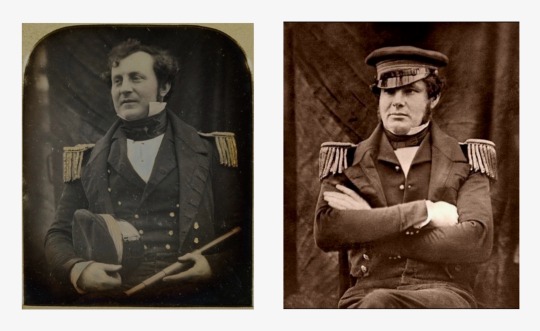
they’re both wearing the same coat (Fitzjames lent Fairholme his for the picture)
There’s actually another picture of each of them
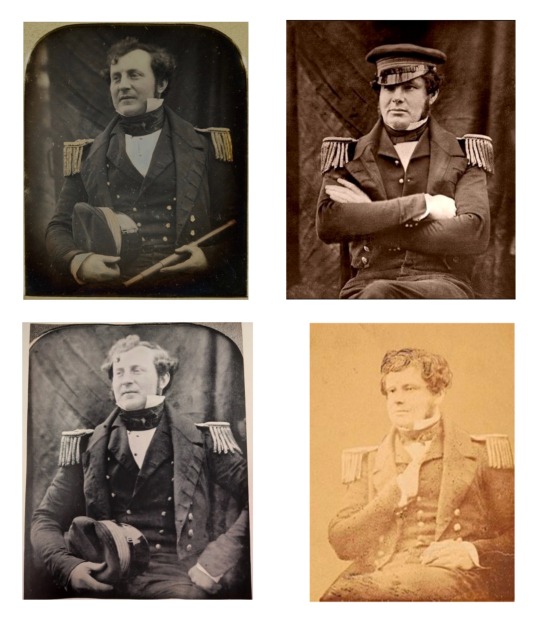
now look at the SLEEVES
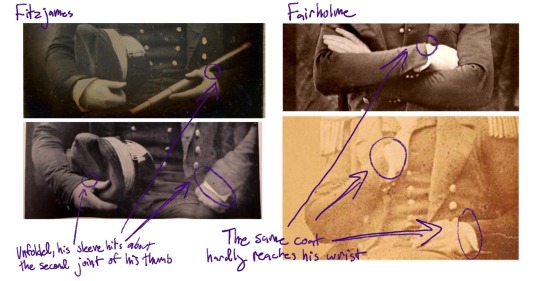
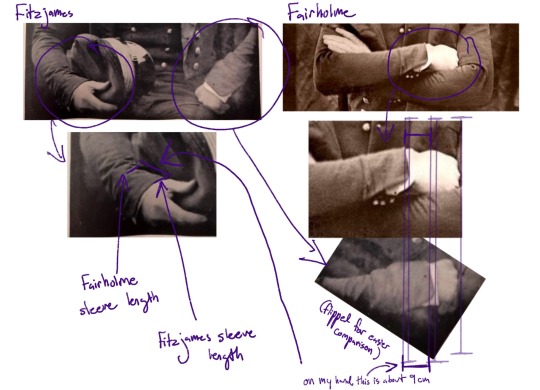
using this table (which I tested out with my brother for scale: he’s about half a foot taller than me, but his forearm’s only about 2cm longer than mine)
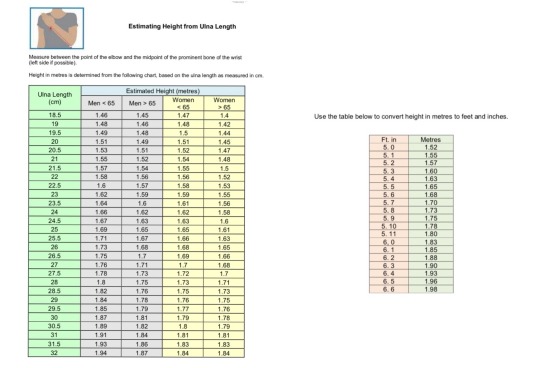
This is by no means exact, (and please correct me if I’m wrong) but I think it’s very probable that Fairholme was something like half a foot (at least!!) taller than Fitzjames
#james walter fairholme#james fitzjames#how did I never reblog this#outstanding research#franklin expedition
131 notes
·
View notes
Text
Franklin Search Expedition

5 years after the Franklin Expedition was at the Whale Fish Islands, one of the Search Expedition officers writes home about the amusements on the expedition and how he is looking forward to sledge travel. "It will be strange if we find no trace of Franklin." They would discover the graves on Beechey Island.
[ADM 7/190, TNA. Newspaper clipping.]
16 notes
·
View notes
Note
Greetings!
Your little spotlights on John Barrow Jr. and the snippets of his letters from/to Fitzjames you have posted here so far made me really curious about the man. Just started looking at his publication on Francis Drake and his travel narratives go next!
Do we know how he reacted to the Admiralty declaring everyone aboard Erebus and Terror dead in 1854? How was he doing (mentally/emotionally) throughout the whole search efforts in general? I vaguely remember seeing a letter (?) in which he said something along the lines of "I wish I died with them up North" but I wouldn't dare dying on this hill because my memory is too flimsy. How would you assess Barrow Jr.'s feelings during that time difficult time period? I would also love to hear more about his friendship with Sophia Cracroft. The thing with the roses is such a lovely story.
Thanks so much in advance!
PS. Thinking too much about Barrow Jr. and Fitzjames now and cannot focus on my actual subject of study.
Thank you so much for this ask! I am glad to see that my John Barrow Jr. propaganda is working. <3 He was such a wonderful and interesting man. The sweetest and kindest guy. A very talented writer and archivist! If you want to get to know JB better, I can totally recommend his travel books! His writing is simply delightful. He was delightful! He and Fitzjames were a perfect match and it's so sad that they didn't get to spend a lot of time together. Nevertheless, Barrow Jr.'s love for Fitzjames was great and it's the main reason that he was so involved in the Franklin Search Expeditions. Oh man, poor JB had THE WORST time during the search period. It's heartbreaking to read his letters. He indeed said, "Many a time I have said that I would willingly be in Franklin’s Ships, wherever they are, than go through what I do." His physical health had deteriorated during the 1850s, probably because of all the stress and worry, but he thankfully got better again in the 1860s when he seriously took up mountaineering and joined the Volunteer Army. In 1854, he would sometimes say that Fitzjames had likely died, but he continued to hope for survivors until at least 1860. I think he tried to be reasonable and accept that he would never see Fitzjames again, but he couldn't bring himself to completely abandon hope. That's the difficult thing about somebody going missing and there being no proof of their death; you keep holding on to the possibility that they might still turn up because it's not completely impossible. Barrow Jr.'s efforts in the search expeditions were on par with Lady Franklin's and he was in constant contact with her and Sophia Cracroft. They were both very fond of JB and they would remain lifelong friends. I can't wait to share the full story of JB's experiences during the search period! (I'm also currently writing a little fic about JB and the search expeditions...) And after that, write JB's biography!
17 notes
·
View notes
Text

The French Army was serving looks in the 18th century.
[General Jean-Joseph Desolle (1767-1828), by Louis-Edouard Rioult, 1836. After Louis Gauffier, before 1801. Musée de l'Armée, Paris.]
10 notes
·
View notes
Text
I'm gonna be talking about my favourite little liar Frederick Cook. :-)
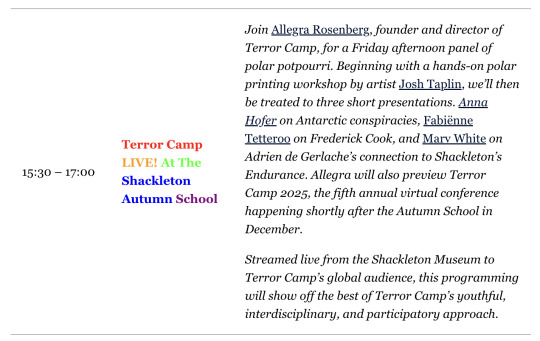
Terror Camp is coming to the Shackleton Autumn School in Ireland!
We'll hosting an art workshop + polar panel presentation on Friday, October 24th to kick off the conference weekend in Athy.
The panel will be streamed live from the new museum building for everyone, but if you're interested in attending in person and you're under 40, please get in touch with us via DM or email for a chance to grab discounted tickets 🥳
131 notes
·
View notes
Text
HMS Terror muster book (1845)

Lieutenant On Duty, he's my fave.
[The National Archives, ADM 38/1962]
#franklin expedition#naval history#royal navy#polar exploration#age of sail#francis crozier#john irving#edward little
183 notes
·
View notes
Text
Recommendation


You see me do a lot of complaining about how bad most of the books about the Franklin Expedition are. Now, this book , Arctic Exploration in the Nineteenth Century, is amazing and my most favourite! Unfortunately it's an expensive academic publication that is therefore not easily accessible. But the topics of the various essays are so good and thought-provoking! All with sources properly cited etc. Well worth tracking down either legally or illegally.🙃
57 notes
·
View notes
Note
Almost all of the Franklin Expedition and adjacent books are doing all of the things that OP describes as red flags. They are more concerned with telling a good story or a certain narrative than accurately passing on factual information. Academic books can also contain mistakes and misinterpretations, but at least they have footnotes/endnotes to see where they get their info from or to what they are responding.
Do you have any tips on doing accurate research for people without access to formal education
Sure! This can't be one size fits all for every field, but I can give some starting points for history.
If you're reading a book, here's what to consider:
1. Are there footnotes or endnotes? In academia this is our way of being transparent with each other about where you got information. If a book doesn't have them, they're more interested in telling a good story than being accountable to their peers. That's a red flag.
2. Don't trust claims that seem very specific but don't have a source. Broad claims can be the author's analysis. But specific things "so and so said this" "there was a rumor that (x)" should be coming from somewhere and it is the author's job to tell you where.
3. Look out for choppy quoting. Even if someone has a source, they may not be using it well. If someone is paraphrasing a lot and only uses bits and pieces of the text while also using a lot of ellipses, you will want to try to find the whole text to make sure it's being quoted fairly.
4. Look at the publication date. Knowledge changes with time and old books tend to be outdated. You don't have to stick to the academic rule of thumb of "25 years is the threshold for new scholarship" but do be aware that if something is over 50 years old, many many people have likely revisited and revised what it's saying. Not that new books can't also be bad and incorrect, but they tend to be working with better tools generally.
5. Look up the author. I cannot stress this one enough. The author's background and political convictions can matter a lot to how they interpret things. For example, one of the biographies people tend to pick up about my dissertation topic is from the late 1920s by a man who later applied to join the NSDAP. That fact really can't be separated from his interpretations no matter how hard people try.
6. Stop reading if someone is making a lot of moral or personal judgements on a historical figure. I'm talking about the "Elizabeth I was a frigid hag and men found her ugly"-esque takes, not things like calling historical atrocities morally bad. Does it feel like bitchy gossip? That sort of thing is unprofessional, uninformative, and means someone has an axe to grind. Spite can be motivation for research, but axe grinding shouldn't show up clearly in published work.
These are things to keep in mind to make sure you're getting better information. Others are free to add on for their field or if there's something I forgot.
One very important thing to add: professors and academics like people emailing them about their research. You can do that! You can ask for copies of pay walled articles. You just have to go through the mortifying ordeal of expressing interest in an email.
5K notes
·
View notes